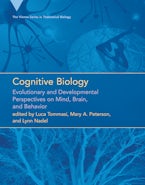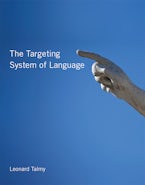There are many books about language learning in general, but it's great to finally see this scientifically sound account of second language acquisition. I was constantly nodding my head at things that I know to be true as an experienced language learner and coach to language learners, explained in a no-nonsense way drawing on many valid sources. Recommended for people who want to know the facts about adult foreign language acquisition.
Benny Lewis, international best-selling author of Fluent in 3 Months
Becoming Fluent is written by cognitive psychologists who lucidly demonstrate how adults can successfully learn a foreign language by utilizing strategies based on reliable cognitive science and educational psychology research. The reader will understand how and why he or she can master a new language—an insight unrealized in previous texts.
Timothy Jay, Professor of Psychology, Massachusetts College of Liberal Arts, and author of The Psychology of Language and Why We Curse
This is a one-of-a-kind book that will give adult language learners the confidence they need to start or continue studying a foreign language. Engagingly written chapters draw on the authors' personal experiences and findings from cognitive science to illustrate why language learners experience problems and explain what they can do to overcome them.
Susan R. Fussell, Professor, Department of Communication and Department of Information Science, Cornell University, and editor of The Verbal Communication of Emotions
The authors bring forth concepts, research, and theories in cognitive science to explain how adults learn, making this book that is packed full of useful scientific information applicable to other learning situations.
Library Journal
The book is helpful for the adult language student but also full of useful information that we can use in other learning situations.
Cosmos Magazine
Kreuz and Roberts... begin by noting three myths associated with language learning in adulthood: adults cannot acquire a foreign language as easily as children, adults should approach learning the way children do, and one should not use a first language to translate a target foreign language. The authors devote the book to slaying these myths with the weapon of cognitive science.... Studded with pearls of wisdom, the book touches on the concepts of self-handicapping, cultural awareness, and the art of memory. Including notes, suggested readings, and references, this is an easy, entertaining, thought-provoking read.
Choice
One final piece of advice offered by the authors is that readers should approach learning with not only a healthy mind and body, but also with a positive attitude toward the learning process itself. Roberts and Kreuz shine here, as they inspire their readers to truly embrace the language and culture they have adopted.
PsycCRITIQUES












